Hunt purity; Hunting with less technology
Over the last few years, I've stepped back from using technology more and more. I didn't grow up hunting with game cameras, though they have been a game changer for my understanding of wildlife, I find myself using them less and less. I don't hunt in the latest scent eliminating camouflage or have the newest boots with warmers or scent eliminating materials. This year, I've gone all in on my traditional, wooden recurve bow that I have practiced with relentlessly. I understand my maximum ethical range and the capabilities of the systems I am utilizing. I haven't eliminated everything though, I still use pop up ground blinds and I've fully invested in a saddle system to hunt from the trees safely, though I don't really consider blinds or a rope and harness system a massive technological advantage, they are still modern systems.
To take a step further this year, I've opted to hunt a property without doing a ton of scouting, no trail cameras & relying on my knowledgebase of woodsmanship & tracking alone.
In today's fast-paced world, where technology is woven into the fabric of our daily lives, it's refreshing to take a step back and reconnect with nature in its most primal form. This means embracing the art of hunting with less technology. While modern gadgets and gizmos can enhance the hunting experience, there's a unique and profound satisfaction that comes from connecting with the land & hunting in a more primitive way.
The Allure of Primitive Hunting
Hunting with less technology harkens back to the roots of this age-old tradition, where our ancestors relied on their wits, skills, intuition and knowledge of the wilderness to put food on the table. There's an undeniable charm in reverting to a simpler approach:
Reconnect with nature: When you strip away the gadgets, you will eventually become more attuned to your surroundings, more present and more connected. Reading the land, understand how to use the topography and growth to your advantage. Understanding the basic biological needs of your chosen game and how they will interact with the landscape is a must. Where are they feeding? Where are the water sources? Is there some sort of cover or topography that lends itself to bedding sites or a retreat from danger?
What other wildlife is present? Are they cohabitating or are they a predator that will add pressure to your hunt?
If I'm finding coyote droppings on game trails, there's a sure bet they are after the young that dropped this spring or more mature animals that may be weaker. Most prey animals are not just our prey.
Traditional Skills: Hunting without the assistance of advanced technology compels you to refine your basic hunting skills. Tracking, stalking, and reading animal behavior become critical. Finding some droppings is great, there were animals here at one point, but finding a spot that's littered with droppings of various ages means wildlife is regularly trafficking through that area. Identifying direction of movement, orientation of tracks and age or gender of the animal is key as well. Small deer tracks may be immature white tails or does, but big heavy tracks that the hoof splits when you find a track is most likely a big, mature male.
Playing the wind, masking your scent and understanding when to move because of a shift is also key, all wildlife rely on their senses far more than we do, their sense of smell is amazing! I once watched a doe, from roughly a hundred yards away, sniff the ground where I had recently moved through. She raised her head, ears and tail, blew and stomped in my general direction and immediately ran from the area.
Embrace hunt purity: The challenges and limitations of primitive hunting add to the sense of accomplishment. Every successful hunt becomes a testament to your knowledge and perseverance. A successful hunt that only relied on your skills, instincts and intuition will bolster your confidence and save you a ton of money in the long run. Game cameras and mapping apps are expensive!!
Tips for Hunting with Less Technology
If you're intrigued by the idea of hunting without relying on a slew of electronic devices, here are some tips to get you started:
1. Learn Tracking and Scouting: Invest time in tracking and scouting. Study animal tracks, signs, droppings and behavior to anticipate their movements. Discovering heavily used travel corridors between food, water and shelter is a sure bet for success. Most game can be patterned in these areas, as long as they remain undisturbed in their routines. Learning mating behaviors and seasons is another sure bet, discovering how to use scents and sounds to your advantage during these times is a powerful skillset.
2. Master Map and Compass Navigation: Instead of GPS devices, develop your map and compass navigation skills. It's a timeless art that can keep you on course. Study topographic maps and look for areas of interest that game might use for shelter, safe movements and food and water resources. Mark these on a map and navigate to them to investigate. Keep a journal of the location, wind, temperature, how wildlife moves when you do see them and any other noteworthy happenings or observations, this will all help to start connecting the pieces of the puzzle together.
3. Opt for Traditional Weapons: Consider using traditional weapons like traditional bows or black powder rifles. These require more skill but offer a rewarding challenge. You will have to practice frequently and have an intimate understanding of your tools and their tuning. Traditional tackle often means getting closer to game and really dialing in scent control, movements and breaking up your silhouette.
4. Minimal Gear: Limit your gear to the essentials. A good knife, reliable backpack, a map, some food and clothing appropriate for the environment are often enough. Bringing a homemade wall blind or basic saddle setup couldn't hurt either and doesn't significantly detract from the experience.
5. Go Slow and Quiet: Embrace stealth and patience. Move silently through the woods and take your time, letting the hunt unfold naturally. When I have the time and have been patient enough to observe rather than act, I've been fortunate enough to witness some amazing things. Groups of raccoons moving through feeding areas, porcupines climbing thirty or so feet into maple trees to shelter, entertaining and wholesome playful family groups of white tails and so much more. One year I had a family group of three bobcats walk within a few yards of the ditch I was hiding in. The whole woods came to life with squirrels barking, all warning each other of the predators. They leisurely strolled through the oak stand paying me no mind, the experience was both terrifying and beautiful.
6. Persistence: Learning the woodsmanship, fieldcraft, patience and building the knowledge base around primitive hunting or using less technology is a step-by-step process than can take many years and lots of failure to achieve. We have to work backwards; we live in an era that is inundated in technological advantages (and the wildlife still persist to out wit us!). Our ancestors would pass knowledge down to generation after generation using trial and error to gain knowledge and experience. If the thought of jumping in feet first is overwhelming, eliminate one technological advantage at a time. Work on your tracking and identification of sign for a season without trail cameras, the next season walk an area with a paper map, compass and wind check. Indentify areas of interest & wildlife signs. Spend the off season working on woodsman ship and fieldcraft, identifying trees and plants and constructing simple brush blinds in high traffic areas.
Be ok with failure and that you are learning something every time you go on a hunt. When you do succeed and harvest, be confident in the newly acquired skills and proud of the harvest you have made.
Reconnecting with Nature
Hunting with less technology, or increasing your hunt purity, is more than a recreational pursuit; it's a journey of rediscovery. It reconnects us with nature and fosters a profound respect for the wildlife we pursue. As you navigate the woods with a more primitive approach, you'll find that the hunt becomes a deeper, more immersive experience.
In a world where technology often acts as a buffer between us and the natural world, hunting with less technology allows us to remove that barrier and engage with nature in a more intimate way. It's a reminder of the fundamental skills that our ancestors relied on and a celebration of the wild places that still exist for us to explore. So, take a step back from the screens, unplug the devices, and venture into the woods with the knowledge that the most rewarding hunts are often the ones that rely on your primal instincts and skills. I hope this has given you some inspiration to attempt hunting, whether with a camera, a bow or a rifle, in a more primitive fashion.
"Go afield with a good attitude, with respect for the wildlife you hunt and for the forest and fields in which you walk. Immerse yourself in the outdoor experience. It will cleanse your soul and make you a better person." - Fred Bear
Get outside!


